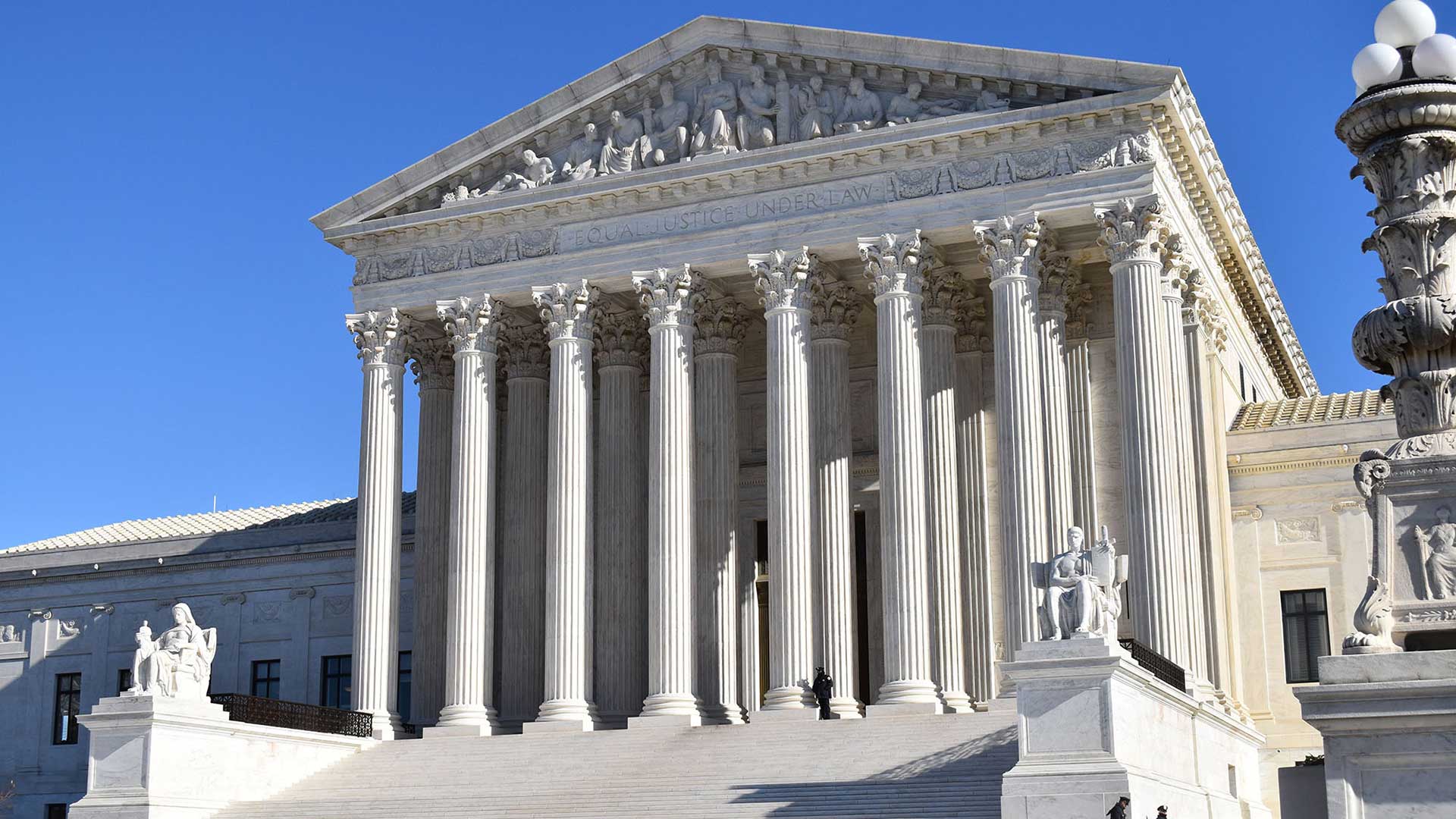 Advocates have scrambled to find answers for DACA recipients amid the the COVID-19 pandemic. Meanwhile, the fate of the program is still up in the air.
Advocates have scrambled to find answers for DACA recipients amid the the COVID-19 pandemic. Meanwhile, the fate of the program is still up in the air.
DACA decision

In 2012, the Obama administration announced the Deferred Action for Childhood Arrivals program. It provides temporary work authorization and relief from deportation for hundreds of thousands of undocumented young people who came to the United States as children. In 2017, the Trump administration moved to end the policy.
The future of DACA is now in the hands of the U.S. Supreme Court, which will rule on it before the end of its term in June.
Kevin Johnson is dean and the Mabie-Apallas professor of public interest law and Chicano studies at the University of California, Davis. He spoke to The Buzz about the Supreme Court case and the Trump administration decision to rescind DACA.
"The question before the Supreme Court is: 'Is this rescission lawful? Or is it unlawful and does it require the Trump administration to deliberate further and go back to the drawing board before they basically get rid of the DACA program?'” Johnson told The Buzz.
The Supreme Court heard the arguments in the case last fall. Johnson said based on the questions of the court, the justices focused on the justification the Trump administration gave for its decision.
“The administration said they believed that DACA was an unlawful policy. But no court had ever found that DACA was unlawful,” Johnson said.
If DACA is rescinded, hundreds of thousands of people would lose their work permits and be at risk of deportation. Johnson said if the court does rule in favor of the Trump administration, the administration would likely be able to remove those protections immediately.
DACA allowed many young immigrants to legally apply for jobs and go to college. But immigration advocates in Arizona said the policy was just a single step in a longstanding fight.
“DACA was not the end, nor the solution,” said Carmen Cornejo, a longtime immigration rights activist based in the Phoenix area.
Cornejo said in the early days, it was less common for young or undocumented people to be open about their status, or their activism. She and other activists took care to ensure that undocumented students would not be put at risk by becoming involved.
But the inclusion of more young people into the movement also led to new tactics. Previously, Cornejo and her colleagues had focused heavily on education. Younger activists opted for more direct action. In 2010 a version of the DREAM Act passed in the House of Representatives. It sought to sought to provide a pathway to permanent residency for young undocumented immigrants, who are commonly known as "Dreamers." It failed in the Senate by five votes.
Two years later, Obama used his executive branch power to introduce DACA without congressional approval.
DACA in Arizona has faced a lot of uncertainty over the years. But the coronavirus pandemic has added a new layer to that experience.
Blanca Sierra Reyes is a hospital social worker in Phoenix. She usually helps patients prepare for the next phase of their recovery. But the coronavirus has changed her day-to-day. While doctors and nurses tend to COVID-19 patients, Reyes is preparing their families for the possibilities of treatment.
“I work at a hospital, and it’s been extra scary working there … coming home to my family and not knowing if I may have potentially been in contact with COVID,” Reyes said.
Almost 30,000 Dreamers, like Reyes, work in health care nationwide, according to a new report by the Center for American Progress. More than three times that number work in other front-line jobs like teaching and food service. About 7,000 front-line Dreamers are in Arizona.
The Supreme Court heard oral arguments on the DACA case last year. In April, immigration lawyers filed a brief highlighting the role DACA recipients are playing during the pandemic.
Some things have changed for DACA recipients in the wake of COVID-19. In Arizona, they are now eligible to receive unemployment benefits. Some are also eligible to receive a stimulus check, but not all.
“A lot of families who have a loved one without proper documentation or a valid social security number unfortunately didn't receive the federal support,” said Reyna Montoya, a DACA recipient and the founder of an immigrant aid group in Phoenix called Aliento.
Undocumented people are not eligible for stimulus money from the federal government or for state unemployment. Montoya said DACA recipients who file taxes as part of mixed immigration status families are also blocked.
Montoya said that means hundreds of families are not receiving the same safety net others are getting during the crisis. That’s why her group started raising their own money to bridge the gap. Montoya says the fund has raised over $100,000 so far — enough to give over 200 families, like Reyes’ family, a $500 check to keep them afloat.
U.S. Citizenship and Immigration Services oversees DACA. Leon Rodriguez was director of the agency from 2013 to 2017, the years immediately following the start of DACA policy. He said a lot of the agency’s response to a ruling in favor of the Trump administration will depend on how the court strikes it down.
"You can expect that over some period of time there will certainly be a halt in the granting of new benefits by USCIS and possibly there is even a risk of terminating the DACA benefits, the work authorization in particular, based on that decision," Rodriguez told The Buzz.
Even if all DACA benefits were to be terminated, Rodriguez said he suspected deportations would not be immediate because the government is already operating at capacity in terms of deportation and detention services.
“The government doesn’t actually have the capacity to deport even a small fraction of the DACA population,” he said.
According to Rodriguez, USCIS already had a backlog of cases before the pandemic.
Several lawmakers who have opposed the DACA policy in the past did not respond to interview requests for this show.
In an amicus brief 13 state attorneys general, including Arizona's, argue DACA is "substantively and procedurally unlawful" because it exceeds executive authority granted under two federal immigration acts. The attorneys general argued the Trump administration's decision to rescind DACA was correct.
The Supreme Court will release its ruling on the validity of the Trump administration's decision to rescind the policy sometime in the next month.



By submitting your comments, you hereby give AZPM the right to post your comments and potentially use them in any other form of media operated by this institution.